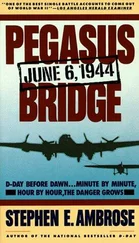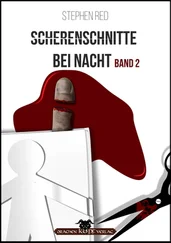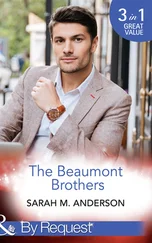Stephen Ambrose - Band of Brothers
Здесь есть возможность читать онлайн «Stephen Ambrose - Band of Brothers» весь текст электронной книги совершенно бесплатно (целиком полную версию без сокращений). В некоторых случаях можно слушать аудио, скачать через торрент в формате fb2 и присутствует краткое содержание. Жанр: История, на английском языке. Описание произведения, (предисловие) а так же отзывы посетителей доступны на портале библиотеки ЛибКат.
- Название:Band of Brothers
- Автор:
- Жанр:
- Год:неизвестен
- ISBN:нет данных
- Рейтинг книги:4 / 5. Голосов: 1
-
Избранное:Добавить в избранное
- Отзывы:
-
Ваша оценка:
- 80
- 1
- 2
- 3
- 4
- 5
Band of Brothers: краткое содержание, описание и аннотация
Предлагаем к чтению аннотацию, описание, краткое содержание или предисловие (зависит от того, что написал сам автор книги «Band of Brothers»). Если вы не нашли необходимую информацию о книге — напишите в комментариях, мы постараемся отыскать её.
Band of Brothers — читать онлайн бесплатно полную книгу (весь текст) целиком
Ниже представлен текст книги, разбитый по страницам. Система сохранения места последней прочитанной страницы, позволяет с удобством читать онлайн бесплатно книгу «Band of Brothers», без необходимости каждый раз заново искать на чём Вы остановились. Поставьте закладку, и сможете в любой момент перейти на страницу, на которой закончили чтение.
Интервал:
Закладка:
They had a character like a rock, these members of the generation born between 1910 and 1928. They were the children of the Depression, fighters in the greatest war in history, builders of and participants in the postwar boom. They accepted a hand-up in the G.I. Bill, but they never took a handout. They made their own way. A few of them became rich, a few became powerful, almost all of them built their houses and did their jobs and raised their families and lived good lives, taking full advantage of the freedom they had helped to preserve.
It seems appropriate to start with the severely wounded. Cpl. Walter Gordon had been shot in the back at Bastogne and paralyzed. After six weeks in hospital in England, lying helplessly in his Crutchfield tongs, he began to have some feelings in his extremities. He had been helped by Dr. Stadium, who would stand at the foot of his bed and provoke him: "You're nothing but a damned goldbrick, Gordon." Gordon would stiffen, snap back, get angry. Because Stadium would not give up on him, Gordon says, "It never occurred to me that I could be a hopeless cripple."
When the tongs came off, Stadium got him to walking, or at least shuffling. In the spring of 1945, Gordon was listed as "walking wounded" and sent by hospital ship back to the States, where he slowly recuperated in Lawson General Hospital in Atlanta. He was there when the war in Europe ended. He walked with pain in the back, he sat with pain in the back, he slept with it. Any physical work was far beyond his capabilities; he was obviously of no further use to the Army. By the middle of June, his father was demanding to know when he would be discharged. "I don't know," was all Gordon could reply.
On June 16, Gordon had an examination. The young doctor then told him he was being transferred to Fort Benning, listed as fit for limited duty. So far as Gordon could make out, his reason was: "Nerve wounds are slow to heal, and to discharge a veteran with my degree of disability would justify a substantial award of compensation. By retaining me for additional months, my condition would no doubt improve."
Gordon called his father to give him the news. His father went into a tirade. "He pointed out to me that I had been wounded twice, and was now, in his words, a cripple. He felt that I had done my fair share and the time had come for me to return home."
Then he gave his son an order to pass along a message to the Army doctor.
Gordon did as told, although with some embarrassment. He began by running on about how this was a message from his father and that he disavowed any connection with it.
"Get on with it!" the doctor barked, indicating how busy he was.
"My father says to tell you that if I am sent to any location other than home, he will come fetch me and fly me to Washington, D.C., and, if necessary, strip me to the waist on the floor of the Senate."
The doc's face fell. Gordon thought it read, "Oh my God, that's all I need is a Mississippi Senator on my case. That's a ticket to the Pacific. Get him out of here."
Aloud he said, "O.K., immediate discharge with full disability." He saw to it that Gordon got a new uniform, took him to the dentist to have his teeth filled, and got him paid off.
Gordon went to law school at Cumberland University, Lebanon, Tennessee. With his 100 percent disability bringing in $200 a month, plus his G.I. Bill benefits, "I was a rich student." A good one, too. He passed the Mississippi Bar even before finishing his law degree, "so I was a licensed attorney still going to school." After graduation, he worked for several major companies in the oil business in south Louisiana. In 1951 he met Betty Ludeau in Acapulco, Mexico, on a vacation. They married a year later, moved to Lafayette, Louisiana, and began what became a family of five children, four of them girls. "I realized that I did not have sufficient salary to support Betty in the manner in which she required," Gordon relates, "so I became an independent."
He went into a high-risk business, buying and selling oil leases, speculating on futures. He was successful at it. The Gordons today have a home in Lafayette and apartments in Pass Christian, Mississippi, New Orleans, and Acapulco. He still has pain, walks with some difficulty, but the Gordons are blessed with wonderful children and grandchildren, they are still in love, they love to tell jokes on themselves, it's been a good life.
"And so what did the Army mean to you?" I asked at the end of our three days of interviewing.
"The most significant three years of my life," Gordon replied. "It had the most awesome effect. I developed friendships which to this day are the most significant that I have. I'm most incredibly lucky that I got through it and even more fortunate that I was with this group of outstanding men."
In December, 1991, Gordon saw a story in the Gulfport Sun Herald. It related that Mayor Jan Ritsema of Eindhoven, Holland, had refused to meet General H. Norman Schwarzkopf, because the commander of the UN forces in the Gulf War had "too much blood on his hands." Ritsema said of Schwarzkopf, "He is the person who devised the most efficient way possible to kill as many people as possible."
Gordon wrote to Mayor Ritsema: "On September 17, 1944 I participated in the large airborne operation which was conducted to liberate your country. As a member of company E, 506th PIR, I landed near the small town of Son. The following day we moved south and liberated Eindhoven. While carrying out our assignment, we suffered casualties. That is war talk for bleeding. We occupied various defense positions for over two months. Like animals, we lived in holes, barns, and as best we could. The weather was cold and wet. In spite of the adverse conditions, we held the ground we had fought so hard to capture.
"The citizens of Holland at that time did not share your aversion to bloodshed when the blood being shed was that of the German occupiers of your city. How soon we forget. History has proven more than once that Holland could again be conquered if your neighbor, the Germans, are having a dull weekend and the golf links are crowded.
"Please don't allow your country to be swallowed up by Liechtenstein or the Vatican as I don't plan to return. As of now, you are on your own."
Sgt. Joe Toye describes his experiences: "After being hit (my fourth Purple Heart) at Bastogne, I went through a series of operations. The main operation being the amputation of my right leg above the knee. Then, later, I had two more operations, these were to remove shrapnel from my upper chest cavity—to remove them the surgeon went in through my back.
"I was married Dec. 15, 1945, while still in the hospital at Atlantic City. I was discharged from the Army Feb. 8, 1946."
He was given an 80 percent disability. Before the war he had been a molder in a foundry, but with a wooden leg he couldn't do the work. He found employment in a textile mill in Reading, Pennsylvania, then worked twenty years for Bethlehem Steel as a bit grinder.
He has three sons and a daughter. "I used to take the boys hunting, fishing, but I never carried a gun—I was worried about tripping. This artificial leg, if something stops it, you're gone, you know. So I never carried a gun. But I took them out deer hunting and fishing. Every year I went camping in Canada with them."
There have been big improvements in artificial legs since 1946. Toye feels the doctors at the VA hospitals have treated him well and kept him up to date with the latest equipment. He does have one complaint. He wants two legs, one slightly larger where it joins the stump. But because the docs say one is enough, "I don't dare gain or lose any weight, else the dam thing won't fit."
Sgt. Bill Guarnere also lost his leg, above the knee, in Bastogne. After discharge in the summer of 1945, he was given an 80 percent disability. He married, had a child, and went to work as a printer, salesman, VA clerk, arid carpenter, all with an artificial leg. There were some mix-ups in his records, which cost him money and led to much dispute with the VA. In 1967 he finally got full disability and was able to retire. He threw away his artificial leg, and for the past twenty-four years he has moved on crutches. He moves faster than most younger men with two good legs. He lives in South Philly, where he grew up, with his wife Fran. They have five children; the oldest son was an Airborne trooper in Vietnam. He is very active in the 101st Association and in getting E Company men together.
Читать дальшеИнтервал:
Закладка:
Похожие книги на «Band of Brothers»
Представляем Вашему вниманию похожие книги на «Band of Brothers» списком для выбора. Мы отобрали схожую по названию и смыслу литературу в надежде предоставить читателям больше вариантов отыскать новые, интересные, ещё непрочитанные произведения.
Обсуждение, отзывы о книге «Band of Brothers» и просто собственные мнения читателей. Оставьте ваши комментарии, напишите, что Вы думаете о произведении, его смысле или главных героях. Укажите что конкретно понравилось, а что нет, и почему Вы так считаете.



![Stephen Ambrose - Citizen Soldiers [Condensed]](/books/346737/stephen-ambrose-citizen-soldiers-condensed-thumb.webp)
![Stephan Orth - Behind Putin's Curtain - Friendships and Misadventures Inside Russia [aka Couchsurfing in Russia]](/books/415210/stephan-orth-behind-putin-s-curtain-friendships-a-thumb.webp)





